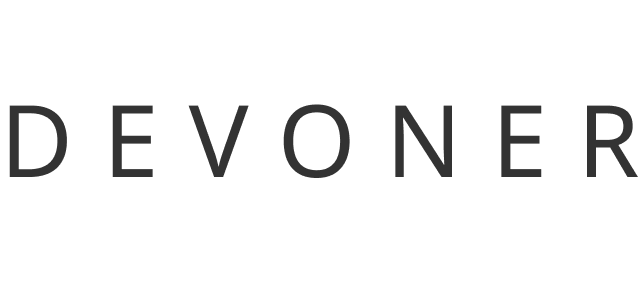Flutter has become a cornerstone for creating visually appealing and highly functional mobile applications. With its growing demand, startups and companies are increasingly seeking skilled Flutter frontend developers. This trend underscores Flutter’s pivotal role in crafting user interfaces that stand out across different platforms, from mobile to desktop, ensuring a seamless user experience. Leveraging a single codebase, Flutter app development offers unparalleled efficiency compared to traditional approaches like React Native.
At Devoner, we understand the importance of selecting the right developer for your project. With our extensive experience in hiring and guiding the recruitment process, we have crafted a comprehensive guide to hiring a Flutter frontend developer. Our guide covers every step in hiring a skilled developer and provides a job ad template to attract potential candidates. After reading, you will be equipped with the knowledge to make an informed decision, ensuring your mobile app leverages Flutter’s full potential for a superior user experience.
Let’s dive in!
What is a Flutter Frontend Developer?
A Flutter frontend developer is an expert in utilizing the Flutter SDK to create stunning user interfaces and seamless experiences across platforms like Android, iOS, and the web. With the hot reload feature, developers streamline the development process, solving challenges like stack overflow issues and optimizing functionality.
Challenges Flutter frontend developers solve:
- Cross-Platform Development Efficiency: Utilizing Flutter SDK and Dart, developers overcome the hurdle of writing separate codes for different platforms.
- UI Consistency Across Platforms: With Flutter widgets, ensuring UI consistency on Android, iOS, and web apps becomes straightforward.
- Quick Iterations: The hot reload feature allows instant viewing of changes, speeding up the development process.
- Seamless Integration with Backend: Flutter’s compatibility with various backend technologies ensures smooth connectivity and data exchange.
- Handling Complex APIs: Flutter developers adeptly manage API interactions, ensuring robust functionality across applications.
How To Hire a Skilled Flutter Frontend Developer in 2024
Hiring a skilled Flutter frontend developer involves a strategic approach to ensure you find a candidate with the right match of technical skills and project compatibility. Here’s a five-step guide to streamline the process in 2024:
Step 1: Define Your Project Requirements
Defining your project requirements sets the foundation for hiring a skilled Flutter frontend developer. Start by outlining your project’s scope, objectives, and technical specifications. Consider essential factors such as platform compatibility, UI/UX design, performance optimization, and integration capabilities. You may ponder the following questions to help define your project requirements:
- What are the key features and functionalities of your project?
- Do you require expertise in specific Flutter packages or plugins?
- Are there any design guidelines or branding elements to adhere to?
- Will the application require seamless integration with backend systems or third-party APIs?
- Are there any performance or scalability requirements to consider?
Articulating your project requirements helps narrow the search for candidates with the relevant skills and experience. It ensures the developer you hire has the expertise to meet your project’s unique needs and deliverables.
Step 2: Research and Shortlist Candidates
Once you’ve defined the project requirements, utilize online platforms, professional networks, and industry forums to identify potential developers specializing in Flutter frontend development. Review their previous projects to gauge their expertise in the Flutter framework and frontend development. Pay attention to the quality of their work, user interface designs, and overall performance of the applications they’ve developed. Shortlist candidates whose skills and experience align closely with your project requirements and objectives.
Devoner is an excellent choice for hiring a reputable development agency with vast expertise in Flutter frontend development. We offer a comprehensive vetting process to match you with skilled and qualified developers who meet your needs. Our rigorous screening process evaluates candidates based on technical proficiency, communication skills, and cultural fit, guaranteeing the selection of top-tier talent for your project.
Step 3: Conduct In-Depth Interviews
Conducting thorough interviews is pivotal in selecting the right developer for your project. It’s an opportunity to delve deeper into the candidate’s skills, assess their problem-solving capabilities, and gauge their compatibility with your team. Here’s how to structure your interviews effectively:
- Technical Skills Assessment: Pose questions that gauge candidates’ proficiency in Flutter frontend development, such as their experience with widget implementation, state management, and navigation patterns within the Flutter framework.
- Problem-Solving Scenarios: Present candidates with hypothetical scenarios or real-world challenges related to Flutter development. Observe their problem-solving approach, creativity, and ability to troubleshoot issues efficiently.
- Understanding of Best Practices: Inquire about candidates’ familiarity with industry best practices in software development, including UI/UX design principles, code optimization techniques, and performance tuning strategies.
- Project Management Approach: Explore candidates’ methodologies for project management, task prioritization, and communication within a development team. Assess their ability to meet deadlines, adapt to changing requirements, and collaborate effectively.
- Communication and Collaboration Skills: Evaluate candidates’ verbal and written communication skills, as well as their professionalism and willingness to engage in collaborative discussions. Assess their ability to articulate technical concepts, explain their thought process, and interact positively with team members.
Step 4: Review Code Samples and Projects
Reviewing code samples and previous projects is crucial to gauge their capabilities accurately when assessing potential candidates. This step provides valuable insights into the candidate’s coding proficiency and practical experience. Here are key aspects to consider:
- Evaluate Code Quality: Examine the candidate’s code samples to assess their readability, efficiency, and adherence to coding best practices. Look for clean and well-commented code demonstrating a thorough understanding of software development principles.
- Assess UI Design Skills: Review the candidate’s ability to implement complex UI designs, considering factors such as layout, navigation, and responsiveness. Look for intuitive and visually appealing interfaces that enhance user experience.
- Analyze State Management Techniques: Assess how candidates handle state management within their codebase. Look for efficient state management solutions that ensure data consistency and application stability.
- Check Integration Proficiency: Evaluate the candidate’s experience integrating third-party libraries and APIs into their projects. Consider their efficiency in seamless API integration and effective utilization of external resources.
Step 5: Negotiate Terms and Finalize Agreement
After identifying the ideal developer, it’s time to negotiate terms and finalize the agreement. This crucial step sets the foundation for a successful collaboration. Here’s how to navigate this process effectively:
- Discuss Project Timelines: Agree on realistic timelines accommodating development phases, testing, and potential revisions. Clarify milestones and deadlines to ensure alignment with project expectations.
- Define Deliverables: Clearly outline the deliverables expected from the Flutter frontend developer, including specific features, functionalities, and design elements. Establish benchmarks for progress tracking and evaluation.
- Set Payment Terms: Negotiate payment terms that are fair and equitable for both parties. Determine whether payment will be based on hourly rates, project milestones, or a fixed fee. Discuss invoicing procedures and payment schedules to ensure mutual understanding.
- Address Additional Requirements: Consider additional requirements or expectations, such as ongoing support, maintenance, or future updates. Discuss the scope of work beyond the initial development phase and ensure clarity on post-launch responsibilities.
- Establish Communication Channels: Emphasize the importance of open communication for regular updates, feedback, and discussions. Proactive communication also addresses any issues or concerns promptly.
Ad Template When Hiring a Flutter Frontend Developer
When crafting an ad to hire a developer, including specific sections to attract suitable candidates is crucial. Here’s a breakdown of what each section should entail:
- Job Description: Clearly outline the role, emphasizing the importance of Flutter in app development. Mention the opportunity to work with open-source technology and collaborate on innovative projects.
- Responsibilities: Specify tasks related to Flutter app development, including UI design, coding, and testing. Highlight the chance to contribute to projects supported by Google.
- Qualifications and Requirements: List skills like Dart proficiency and experience with languages like Java. Address potential drawbacks, emphasizing the importance of problem-solving skills and familiarity with browser-based development.
- How To Apply: Provide instructions for submitting applications, encouraging candidates to showcase their experience through portfolios or GitHub repositories.
Sample Ad Template for Flutter Frontend Developer
Crafting a compelling ad for a Flutter frontend developer is essential for attracting top talent. Here’s a sample of a concise yet compelling ad template:
Job Description: Are you ready to shape the future of web development with cutting-edge technology? We seek talented individuals to join our team and contribute to innovative projects. As a Flutter frontend developer, you’ll play a crucial role in crafting exceptional user experiences and driving innovation in app development.
Responsibilities:
- Design and implement visually compelling Flutter applications for iOS and Android using Flutter SDK.
- Work closely with our UI/UX team to translate visual designs into functional web and mobile apps.
- Utilize Dart programming language to ensure efficient, readable, and maintainable code.
- Engage with the Flutter engine and native machine code to enhance app performance.
- Collaborate with the backend team to integrate APIs seamlessly.
- Apply best practices for Flutter code to maintain high app functionality and design standards.
- Keep up with the latest trends in Flutter development, including exploring new widgets and updates from the Flutter team.
Qualifications and Requirements:
- Proficient in Dart programming language and Flutter framework.
- Experience with IDEs like VS Code and Android Studio.
- Familiarity with web development technologies: JavaScript, HTML, and CSS.
- Understanding of app layout and design principles.
- Ability to write clean, efficient native machine code.
- Knowledge of version control tools and Flutter documentation.
- Creativity and problem-solving
skills, with a portfolio to showcase previous projects.
How To Apply: Ready to embark on this journey? Please submit your resume and a link to your portfolio showcasing your best Flutter projects to our careers page or [email]. Please include a brief cover letter explaining why you’re the perfect fit for our Flutter frontend team.
Considerations When Hiring a Flutter Frontend Developer
When hiring a Flutter frontend developer, several pivotal factors come into play, influencing both the outcome of your projects and your development team’s efficiency. Below, we delve into five essential considerations:
- Technical Expertise and Experience: Seek candidates with a robust understanding of the Dart programming language and extensive experience with the Flutter framework. Their portfolio should showcase diverse projects highlighting their ability to leverage Flutter’s widgets, hot reload, and other features for crafting seamless user interfaces across platforms. Familiarity with Android Studio and Visual Studio Code IDEs is vital for efficient development and debugging.
- Understand the Full Development Lifecycle: A suitable Flutter developer should fully grasp the full development lifecycle, from concept to deployment. This includes proficiency in Git and other version control tools, experience with continuous integration/deployment (CI/CD) practices, and an ability to work collaboratively within teams following Agile methodologies.
- Knowledge of Modern UI/UX Principles: Given Flutter’s focus on UI, candidates should demonstrate a keen eye for design and a deep understanding of modern UI/UX principles. Their ability to translate complex design wireframes into high-quality code that runs smoothly across iOS, Android, and web platforms is crucial.
- Legal and Compliance Awareness: Ensure potential hires know legal and compliance issues related to app development, including data protection regulations, accessibility standards, and software licensing. This knowledge is critical to avoiding future legal pitfalls and ensuring your app meets all necessary guidelines and requirements.
- Budget and Project Timeline Considerations: Align your hiring decision with budget constraints and project timelines. Determine whether a full-time, part-time, or freelance Flutter developer best suits your financial and project milestones. Transparent discussions about compensation, expected deliverables, and deadlines from the outset can pave the way for a successful collaboration.
Key Takeaway
Selecting a Flutter frontend developer plays a pivotal role in ensuring the success of your project. Their proficiency in software development significantly impacts the project’s outcome. Whether it’s a mobile app or a web application, finding the right talent is crucial for smooth development and optimal performance. Choose candidates based on their experience, skills, and portfolio to ensure they meet your project requirements.
As you initiate the hiring process, establish your project requirements beforehand. Define the scope, objectives, and functionalities you want your developer to work on. Understanding your project’s needs helps identify the right candidate with the necessary expertise and skills. This ensures alignment between the developer’s capabilities and your project goals, leading to successful implementation and delivery.
Want to learn more? Explore Devoner’s other blogs for a Flutter review. These resources offer valuable insights into the Flutter frontend community, from tutorials and documentation to firsthand experiences and expert advice. By immersing yourself in this knowledge, you can make an informed decision, ensuring you partner with the best Flutter developers who can transform your vision into a responsive, high-performing web app.


